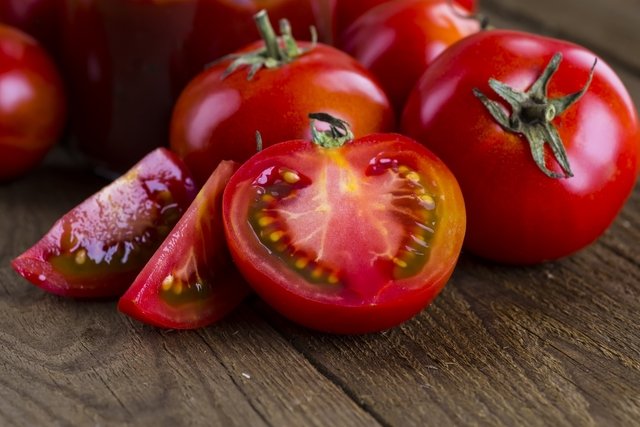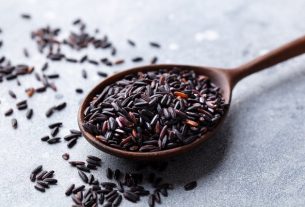Tomato seeds are normally harmless, because they are rich in quercetin, catechins, kaempferol and caffeic acid, which are bioactive compounds with anti-inflammatory, antimicrobial and antioxidant action, promoting several health benefits.
Likewise, tomatoes also reduce the risk of cardiovascular diseases, help prevent prostate cancer, increase the body’s defenses and maintain the health of skin, hair and vision. Discover all the health benefits of tomatoes.
Despite all the benefits of tomatoes, there are still some doubts about whether consuming the seeds can be harmful to your health or not. This is because, in some situations, the seed of this vegetable can cause some problems.

1. Causes kidney stones
DEPENDS. Tomatoes and tomato seeds are rich in oxalate, a substance that, when ingested in excess, increases the risk of the formation of calcium oxalate stones in the kidneys. But this risk only exists in people who already have kidney stones or are more likely to develop this problem, such as in cases of changes in kidney function, genetic predisposition, low water intake or excessive salt consumption.
In these cases, to prevent the formation of calcium oxalate stones in the kidneys, it is recommended to consume up to 50mg of oxalate per day, which corresponds to 40g of raw tomatoes or 80g of tomato sauce. Furthermore, it is advisable to always prioritize cooked tomatoes and their seeds, as cooking reduces the oxalate content in the food.
It is important to remember that for people who are not at increased risk of developing kidney stones, tomatoes and tomato seeds do not increase the risk of developing this problem.
2. It’s bad for those who have gastritis or reflux
DEPENDS. Some people with gastritis or reflux may experience burning, stomach pain or poor digestion when eating tomato seeds because they are high in acids. In this case, it is recommended to avoid consuming these seeds.
However, tomato seeds are rich in quercetin, catechins, kaempferol and caffeic acid. These bioactive compounds have anti-inflammatory and antioxidant properties, which can therefore help in the treatment of gastritis and reflux.
Therefore, it is recommended to keep a food diary to assess, together with your doctor or nutritionist, whether the consumption of tomato seeds is causing the appearance or worsening of gastritis or reflux symptoms.
3. It worsens diverticulitis attacks
TRUE. Tomato seeds and tomato skin can worsen a diverticulitis attack, as in diverticulitis it is recommended that the person follows a low fiber diet. See what the diet for diverticulitis should be like.
However, tomato seeds and skin do not increase the risk of developing diverticulitis, nor do they cause a new attack, and can therefore be consumed when the disease is under control.
4. Tomato seed is prohibited in gout
MITO. It is believed that tomatoes and tomato seeds can trigger or worsen a gout attack. However, vegetables are typically low in purines. Furthermore, the type of purines present in vegetables, such as guanine and xanthine, do not increase the level of uric acid in the blood.
Foods of animal origin, on the other hand, have a higher content of hypoxanthine, a type of purine that is converted in the body into uric acid, and is therefore mainly responsible for increasing uric acid levels in the blood, which can cause or worsen gout. .
5. It is harmful to the pancreas and gallbladder
MITO. Tomatoes and their seeds actually improve the health of the pancreas and gallbladder, as they help the entire digestive system function properly and eliminate toxins. Furthermore, tomatoes also help prevent and combat liver diseases.
6. Causes appendicitis
MITO. There is no scientific evidence to prove that ingesting tomato seeds causes appendicitis.
Appendicitis can be caused by factors such as a low fiber diet, intestinal infection or intestinal worms, for example. Discover the main causes of appendicitis.
7. Protects against prostate cancer
TRUE. Tomatoes and tomato seeds are important allies to protect against prostate cancer, due to the presence of antioxidant substances such as lycopene and vitamin C. Check out other foods that are good for the prostate.
8. Helps maintain more fluid circulation
MITO. In fact, tomatoes and their seeds help the intestinal microbiota to produce vitamin K, which is responsible for blood clotting. For this reason, eating tomatoes does not make the blood thinner.
9. It has many pesticides
DEPENDS. The amount of pesticides present in tomatoes and tomato seeds varies depending on the regulations of each country.
Some tips for reducing pesticide intake are to prioritize organic or agroecological foods, buy seasonal foods or wash food thoroughly under running water, which can help reduce the level of pesticides present in the skins of fruits and vegetables.
10. Tomato is a fruit
DEPENDS. According to the botanical classification, which evaluates the structure, function and organization of plants, the tomato is considered a fruit, because it has seeds and grows from a flower.
In terms of nutrition and gastronomy, tomatoes are considered a vegetable. This is because the classification of foods in these areas varies mainly depending on the way they are used and the flavor. In this case, as tomatoes have a milder and bitter flavor and are generally used in sauces, salads and stews, they are considered a vegetable.

Sign up for our newsletter and stay up to date with exclusive news
that can transform your routine!
Warning: Undefined array key "title" in /home/storelat/public_html/wp-content/plugins/link-whisper-premium/templates/frontend/related-posts.php on line 12
Warning: Undefined array key "title_tag" in /home/storelat/public_html/wp-content/plugins/link-whisper-premium/templates/frontend/related-posts.php on line 13




